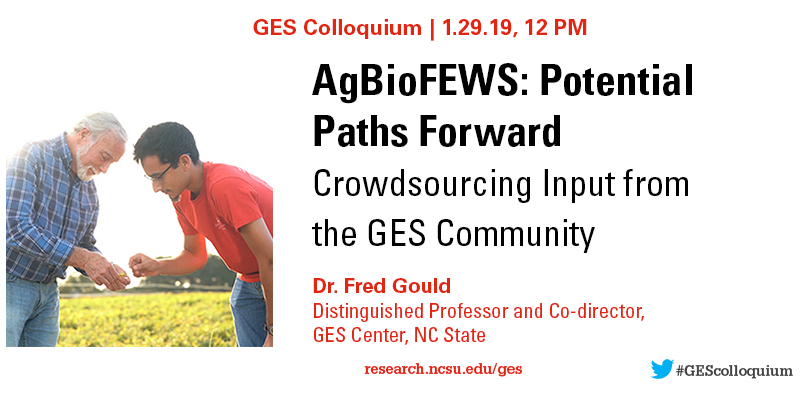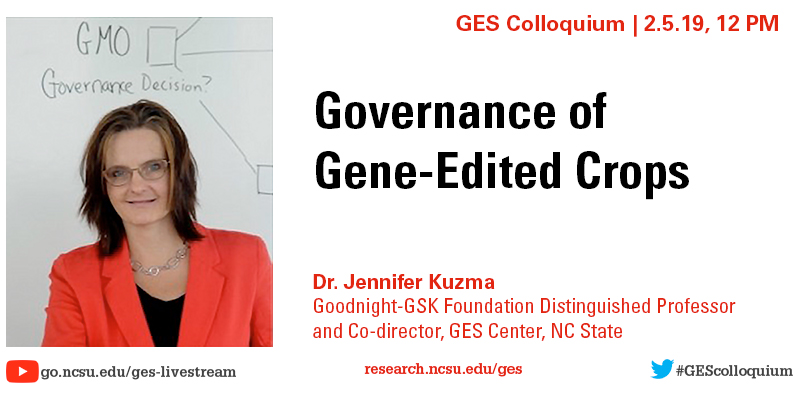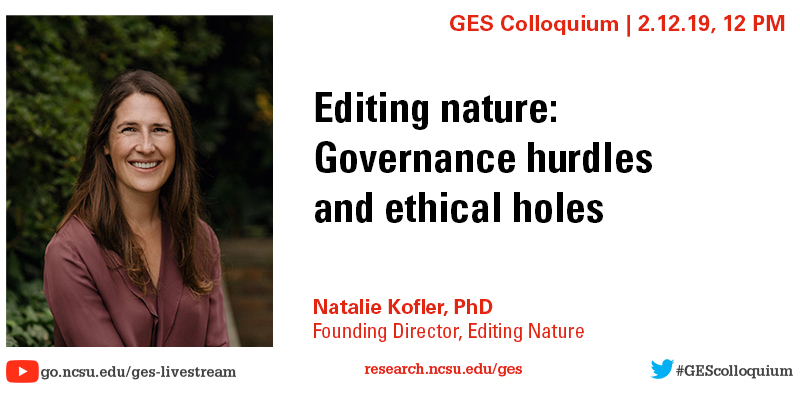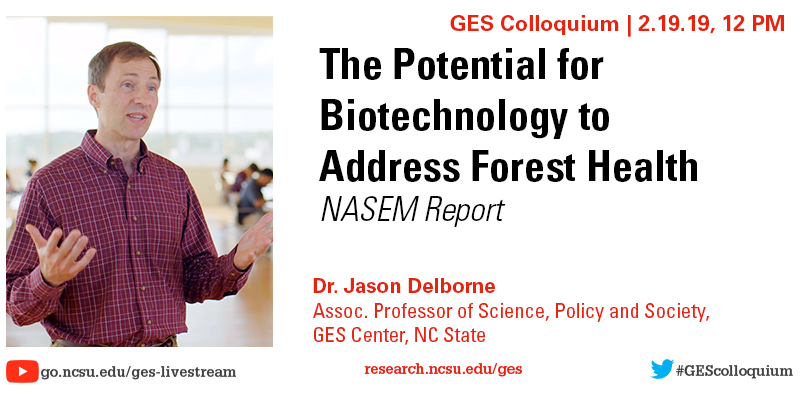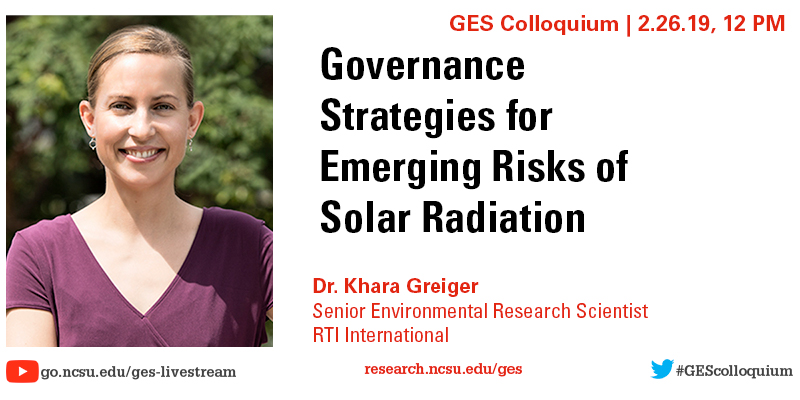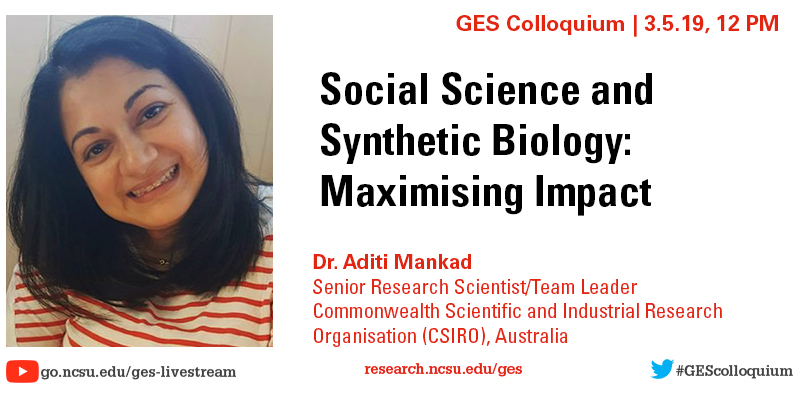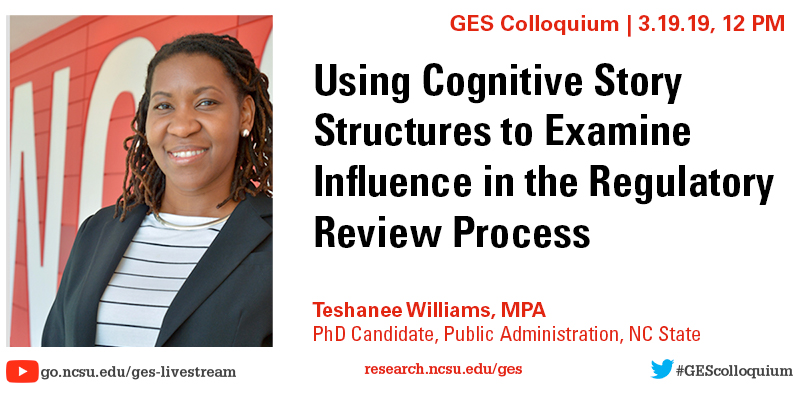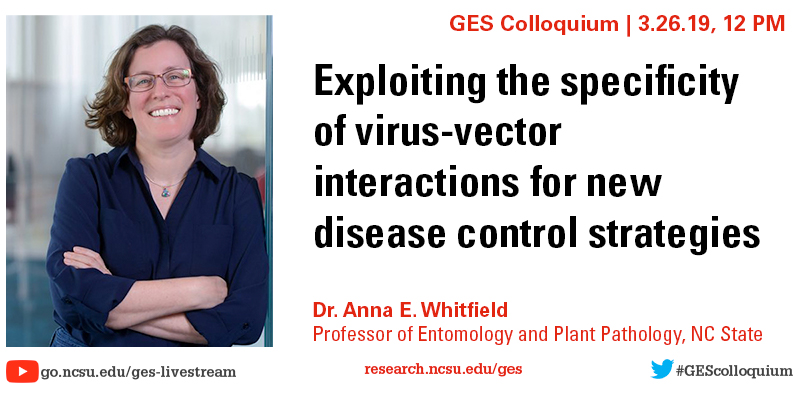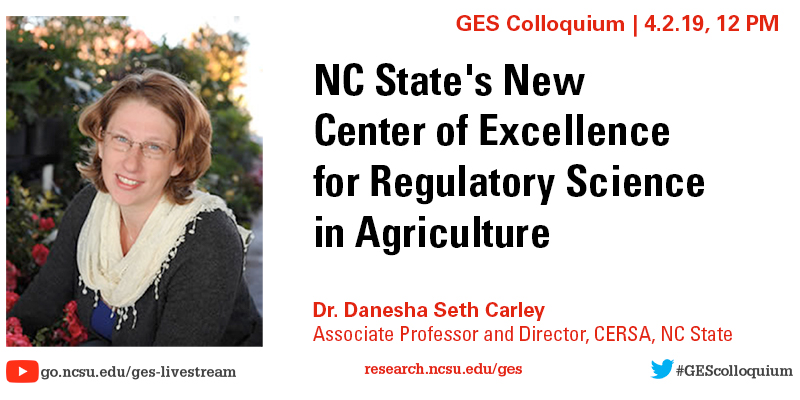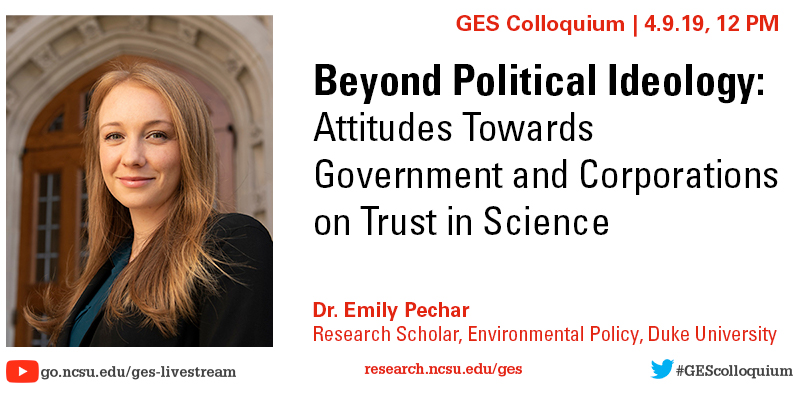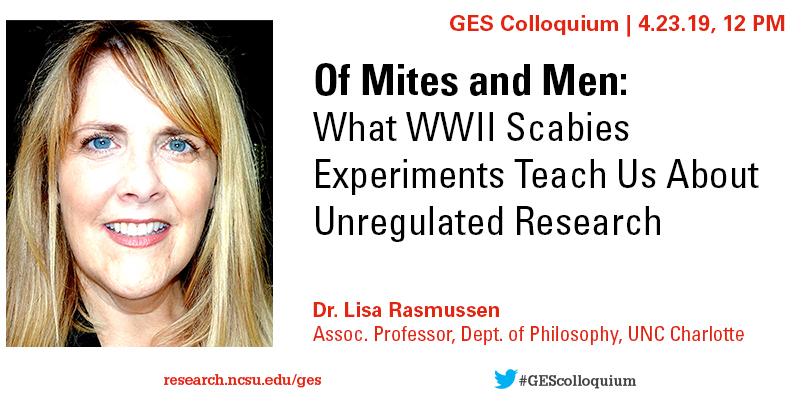GES Colloquium | Fred Gould: AgBioFEWS Potential Paths Forward – Crowdsourcing Input from the GES Community
1911 Building, Room 129 (North Campus) 10 Current Dr., Raleigh, NC, United StatesGES Colloquium, 1/29/19 - Fred Gould | The GES Center is launching our new NSF-funded Research Traineeship, Agricultural Biotechnology and Our Evolving Food, Energy, and Water Systems, or AgBioFEWS. We are in the process of recruiting our first cohort of students and designing details of our courses. We would like to use this colloquium to get feedback from students on faculty on a choices that we will be making.
